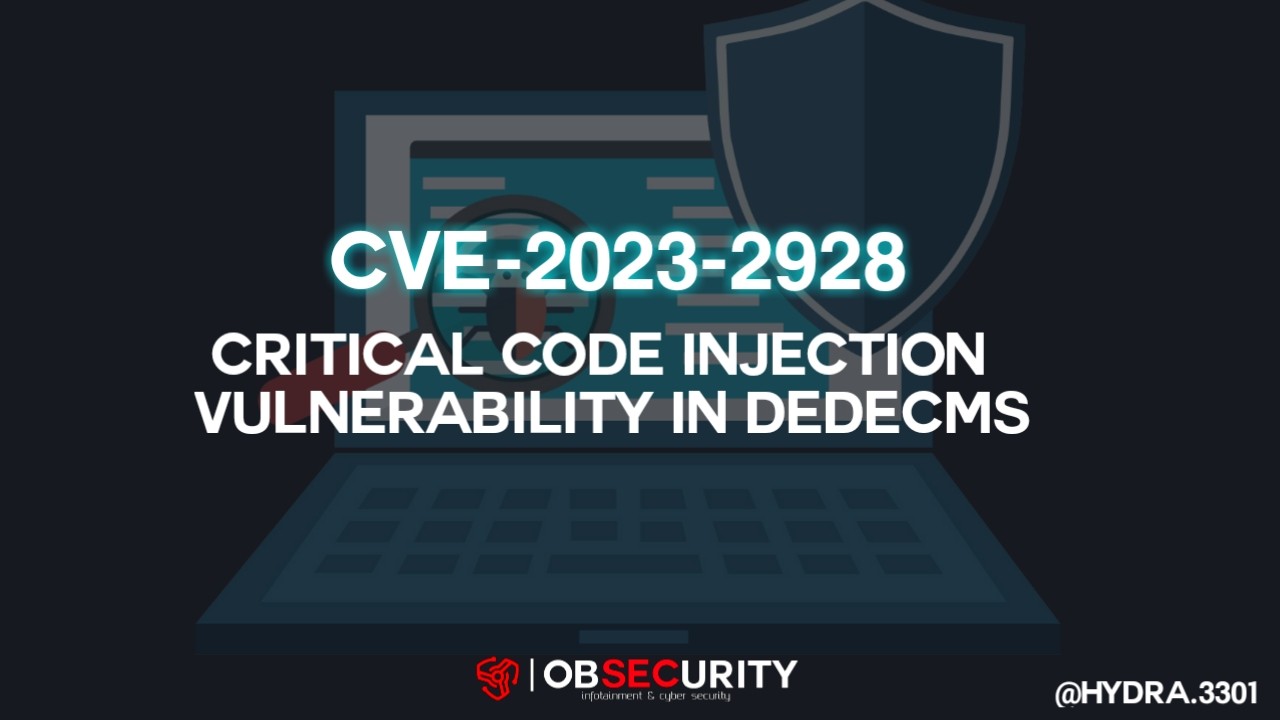
Introduction
In the realm of cybersecurity, the discovery of vulnerabilities is a constant battle to ensure the safety and security of digital systems. One such vulnerability, identified as CVE-2023-2928, has recently emerged as a critical threat. This blog post aims to shed light on CVE-2023-2928, exploring its implications and emphasizing the importance of taking immediate action to mitigate the risks associated with this vulnerability.
Understanding CVE-2023-2928
CVE-2023-2928 refers to a critical code injection vulnerability that affects DedeCMS, specifically versions up to 5.7.106. This vulnerability resides in an unidentified functionality within the file uploads/dede/article_allowurl_edit.php. Exploiting this vulnerability involves manipulating the “allurls” argument, which triggers code injection. The severity of this vulnerability stems from the fact that it can be exploited remotely, making it a significant concern for organizations utilizing DedeCMS.
Potential Implications
The code injection vulnerability associated with CVE-2023-2928 carries various potential implications, including:
Remote Code Execution: Exploiting this vulnerability enables malicious actors to execute arbitrary code on vulnerable DedeCMS instances. By injecting malicious code, attackers can gain unauthorized access, compromise data, or further exploit the affected system for their nefarious purposes.
Data Breach: The ability to inject code allows attackers to bypass security measures and gain unauthorized access to sensitive information. This could lead to a data breach, potentially exposing personally identifiable information (PII), financial data, or other confidential data stored within the compromised system.
Website Defacement: In some cases, attackers may leverage code injection to deface websites. By modifying the code of the targeted website, they can alter its appearance, display malicious content, or spread propaganda, tarnishing the organization’s reputation and potentially causing financial losses.
Malware Distribution: Exploiting CVE-2023-2928 could enable attackers to inject and distribute malware through compromised websites. This could result in the infection of visitors’ systems, leading to further compromise, data loss, or financial damage.
Immediate Actions and Mitigation
To mitigate the risks associated with CVE-2023-2928, it is crucial to take the following steps:
Update to the Latest Version: DedeCMS users should update to a patched version that addresses the code injection vulnerability. This involves applying the latest security patches and fixes provided by the DedeCMS development team.
Implement Web Application Firewalls (WAF): WAFs can help detect and block malicious requests attempting to exploit vulnerabilities like code injection. Organizations should consider implementing a WAF to provide an additional layer of defense.
Perform Security Audits: Conduct a thorough security audit of DedeCMS installations to identify any signs of compromise or unauthorized access. This can help ensure that systems are secure and free from any existing exploits.
Educate Users: Organizations and website administrators should educate users about potential security risks and best practices, such as being cautious while opening email attachments, avoiding suspicious links, and keeping software up to date.
Conclusion
CVE-2023-2928 poses a significant threat to organizations using vulnerable versions of DedeCMS. The code injection vulnerability it encompasses can lead to remote code execution, data breaches, website defacement, and the distribution of malware. By promptly applying patches, implementing security measures, and promoting user awareness, organizations can mitigate the risks associated with CVE-2023-2928, ensuring the security and integrity of their systems and data.
Contact : Instagram